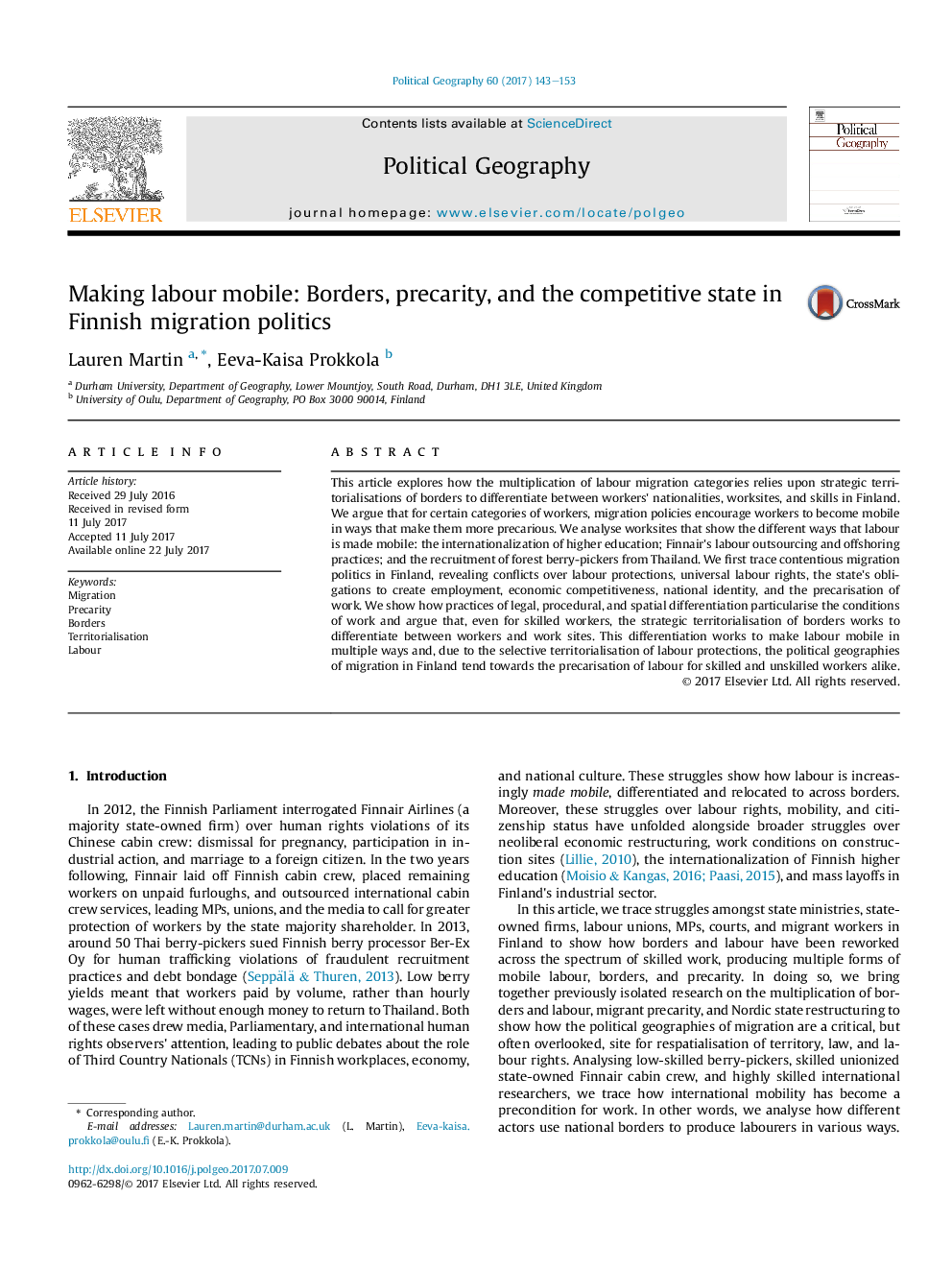| Article ID | Journal | Published Year | Pages | File Type |
|---|---|---|---|---|
| 5118518 | Political Geography | 2017 | 11 Pages |
This article explores how the multiplication of labour migration categories relies upon strategic territorialisations of borders to differentiate between workers' nationalities, worksites, and skills in Finland. We argue that for certain categories of workers, migration policies encourage workers to become mobile in ways that make them more precarious. We analyse worksites that show the different ways that labour is made mobile: the internationalization of higher education; Finnair's labour outsourcing and offshoring practices; and the recruitment of forest berry-pickers from Thailand. We first trace contentious migration politics in Finland, revealing conflicts over labour protections, universal labour rights, the state's obligations to create employment, economic competitiveness, national identity, and the precarisation of work. We show how practices of legal, procedural, and spatial differentiation particularise the conditions of work and argue that, even for skilled workers, the strategic territorialisation of borders works to differentiate between workers and work sites. This differentiation works to make labour mobile in multiple ways and, due to the selective territorialisation of labour protections, the political geographies of migration in Finland tend towards the precarisation of labour for skilled and unskilled workers alike.
